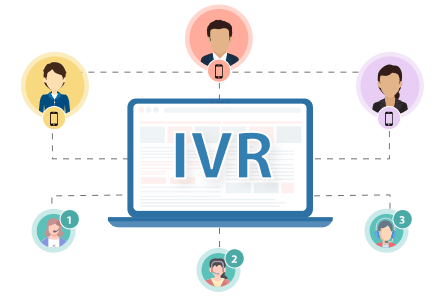Interactive Voice Response (IVR) technology has revolutionized customer service and communication systems. It enables automated interactions with callers, allowing them to navigate through menus and obtain relevant information or complete specific tasks.
In the context of the SS7 network, which is widely used for signaling and control in telecommunications, several providers offer IVR facilities to enhance the functionality and efficiency of communication networks.
Contents
Understanding SS7 Network
Signaling System 7 (SS7) is a protocol suite used for call signaling and control in traditional circuit-switched telecommunication networks. It provides features such as call setup, teardown, and advanced call routing. SS7 also enables the exchange of signaling messages between network elements, facilitating services like caller ID, call forwarding, and roaming.
What is IVR?
Interactive Voice Response (IVR) is an automated telephony system that allows callers to interact with a computerized voice menu through their telephone keypad or voice commands. IVR systems can be integrated into various communication networks, including SS7, to enable self-service options, gather customer information, and route calls efficiently.
Benefits of IVR Facilities in SS7 Networks
- a) Enhanced Customer Experience: IVR systems enable self-service options, allowing customers to access information or complete tasks quickly without waiting for a live agent. This enhances customer satisfaction by providing 24/7 accessibility and reducing call queue times.
- b) Increased Efficiency: IVR facilities in SS7 networks streamline call routing processes, ensuring that calls reach the most appropriate destination. By automating repetitive tasks and providing self-service options, IVR systems free up agents to handle more complex inquiries, resulting in improved operational efficiency.
- c) Cost Reduction: By automating routine tasks and reducing the need for live agents, IVR facilities in SS7 networks can significantly lower operational costs for businesses. Additionally, IVR systems minimize the chance of errors in call handling, reducing the need for costly customer call-backs.
- d) Scalability and Flexibility: IVR facilities offered by various providers in SS7 networks are designed to be scalable and flexible, allowing businesses to adapt to changing call volumes and requirements. IVR systems can easily handle peak call times without compromising the quality of customer service.
- e) Data Collection and Analysis: IVR systems integrated with SS7 networks enable the collection of valuable data about caller behavior, preferences, and call patterns. This data can be used to gain insights, improve customer service strategies, and drive business growth.
- f) Call Routing and Call Management: IVR facilities can intelligently route incoming calls based on predefined criteria, such as caller ID, time of day, or dialed number. This ensures that calls are directed to the most appropriate department or agent, reducing wait times and improving overall efficiency.
- g) Self-Service Capabilities: IVR systems enable customers to access account information, make payments, check order status, and perform various self-service tasks without the need for human assistance. This empowers customers to resolve issues quickly and conveniently, 24/7.
- h) Personalized Messaging: IVR facilities allow businesses to deliver personalized messages to customers based on their profile or previous interactions. This can include personalized greetings, promotional offers, or tailored instructions, enhancing the customer’s perception of the brand and fostering loyalty.
- i) Integration with Backend Systems: IVR facilities can integrate with backend databases, CRM systems, or other enterprise applications, enabling real-time data retrieval and updating. This integration ensures accurate and up-to-date information is provided to customers, facilitating efficient query resolution.
Practical Applications of IVR Facilities
IVR facilities in SS7 networks find extensive applications across various industries and sectors. Some practical applications include:
- Customer Support and Help Desks: IVR systems can handle a wide range of customer inquiries, providing self-service options, routing calls to appropriate agents, and reducing the overall burden on human resources.
- Banking and Financial Services: IVR facilities enable customers to access account balances, make fund transfers, request checkbooks, and perform other banking transactions securely and conveniently.
- Telecommunications: IVR systems play a vital role in the telecommunication industry by enabling customers to manage their services, activate/deactivate features, and retrieve billing information.
- Healthcare: IVR facilities assist healthcare providers in appointment scheduling, prescription refills, test results, and patient information retrieval.
- Travel and Hospitality: IVR systems allow travelers to check flight status, make hotel reservations, retrieve itineraries, and obtain travel information.
Conclusion
IVR facilities in SS7 networks play a crucial role in enhancing communication systems and customer service. Leading providers offer a range of features and benefits, including improved customer experience, increased efficiency, cost reduction, scalability, and valuable data analysis.
By leveraging IVR facilities within the SS7 network, businesses can streamline their communication processes, deliver personalized customer experiences, and achieve significant operational advantages.
